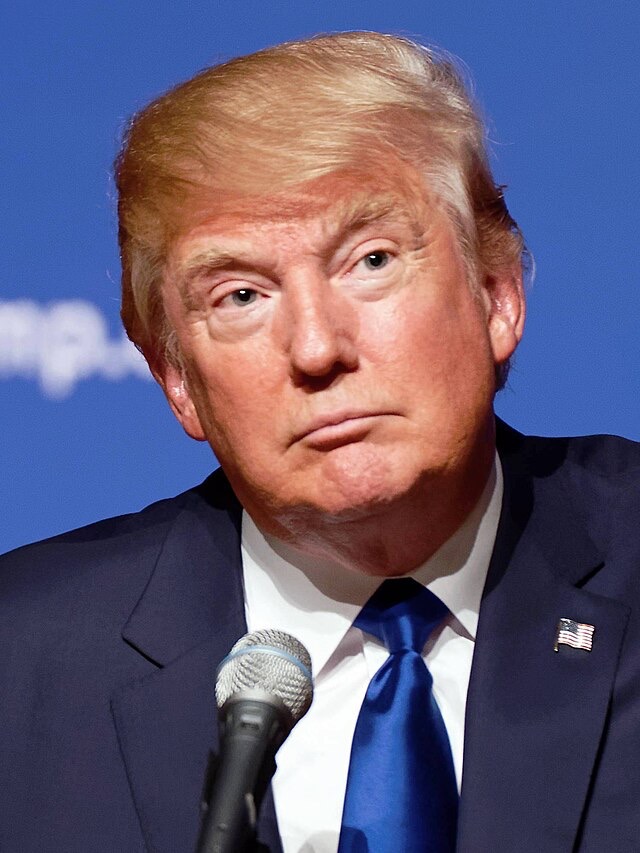Global stock markets have plunged into chaos following former U.S. President Donald Trump’s explosive announcement of a sweeping 20% tariff on all imported goods. The announcement—dubbed “Liberation Day” by Trump—has triggered fears of a global trade war and a possible worldwide recession, causing shares to plummet across Asia, Europe, and the Americas, and sending shockwaves through global industries.
The proposed tariffs, set to take effect on April 2, have been framed by Trump as a radical move to “restore economic independence” to the United States. But investors and economists alike warn that this could unleash a domino effect of retaliatory trade measures, inflationary spikes, disrupted supply chains, and stalled global economic growth.
Major stock indices reacted immediately. The Nikkei 225 in Japan and Taiwan’s TAIEX both plunged by over 4%, with South Korea, Hong Kong, and Shanghai also seeing steep losses. In Europe, the FTSE 100, Germany’s DAX, and France’s CAC 40 opened sharply lower. U.S. stock futures also dipped into the red, signaling a turbulent day ahead on Wall Street.
The impact was especially severe in the automotive and manufacturing sectors, which rely heavily on international supply chains. Global carmakers were hit hardest, with Trump adding a specific 25% tariff on imported cars and car parts. This wiped over £14 billion off the market value of automotive giants like Ford, BMW, Toyota, and Mercedes-Benz. Analysts warned this move could lead to soaring vehicle prices for consumers and operational disruptions for manufacturers across Europe, Asia, and the U.S.
This escalating financial instability is already driving investors toward safe-haven assets. Gold surged to an all-time high of $3,154 per ounce, reflecting the growing fear and uncertainty rippling through global financial systems. Meanwhile, the U.S. dollar suffered its worst monthly decline since 2022, amplifying concerns that the economic fallout may be deeper and more prolonged than initially expected.
Economic experts are warning that the tariffs could push the global economy into recession. Goldman Sachs has raised its recession forecast for the U.S. to 35%, citing declining consumer confidence and potential supply chain shocks. The investment bank also hinted that the Federal Reserve may be forced to implement emergency rate cuts to mitigate economic damage.
Markets are also bracing for the ripple effects across industries. Retail, tech, agriculture, and energy sectors are expected to be impacted as the cost of imported raw materials and components rises. Small businesses and consumers could also face the brunt of increased costs, feeding into inflation and further weakening purchasing power.
International reactions have been swift. UK Prime Minister Keir Starmer has opted for restraint—so far. While the UK has not responded with retaliatory tariffs, Starmer has left the door open for future action, stating that his government is pursuing negotiations with Washington but has contingency plans in place.
The European Union, China, and other major trading blocs are considering coordinated responses. Brussels has already initiated emergency talks with member states, while Beijing hinted at “necessary countermeasures” if the U.S. tariffs are implemented.
Critics argue Trump’s aggressive tariff policy could ignite a full-scale trade war worse than the one triggered during his presidency in 2018–2019. At the time, retaliatory measures from China and other countries caused significant economic damage and created volatility in global markets for months. This time, the scope of the tariffs is broader and more severe—covering virtually all imports into the U.S.
Business leaders, economists, and trade unions are urging calm but are calling on governments to act quickly to stabilize markets and prevent long-term harm. The U.S. Chamber of Commerce has issued a rare statement condemning the plan, warning that “blanket tariffs will hurt American businesses, workers, and consumers.
As the deadline looms, the world waits anxiously to see whether Trump will follow through on his threats or if global pressure will force a reconsideration. For now, however, markets remain volatile, investors are on edge, and fears of a global recession are once again at the forefront of the financial conversation.



